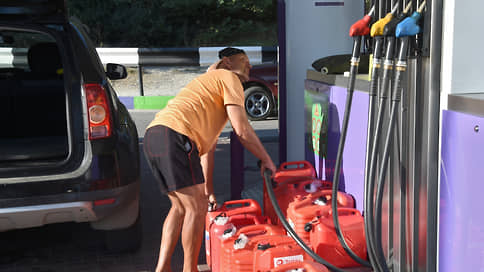FAS demanded that oil companies sell more fuel on the open market
[ad_1]

The Federal Antimonopoly Service has threatened major oil companies to launch investigations against them if they do not increase sales of gasoline on the stock exchange. They declined significantly as companies refocused supplies on exports amid high netbacks and lower fuel dampers. Wholesale prices for gasoline in June almost daily update absolute records.
Federal Antimonopoly Service (FAS) sent letters nine oil companies with a demand to increase sales of gasoline on the St. Petersburg International Commodity and Raw Materials Exchange (SPIMEX). According to several Kommersant sources familiar with the course of the FAS exchange committee, warnings were received by Rosneft, LUKOIL, Gazprom Neft, Tatneft, Neftekhimservis (owns the Yaya Oil Refinery), TAIF, Forteinvest, trader Gazprom GPN Holding” and “Gazprom neftekhim Salavat” (both companies belong to “Gazprom”).
As the FAS explained, the volume of fuel sales on the stock exchange over the past five months decreased by 7.9% year-on-year, which led to “unsatisfied demand for AI-92 and AI-95 gasoline in the domestic market.”
According to the exchange, for 105 trading days from January 9 to June 13, 2023, 3.19 million tons of railway batches of high-octane gasoline were sold during the main session.
According to the FAS, the reduction in sales on the stock exchange led to significant price increases. Exchange prices for gasoline have been rising since April and over the previous two months have increased by more than 20% for AI-92, and by 24% for AI-95. On June 14, the wholesale price of the AI-95 once again hit a historical high, reaching a level of 65.5 thousand rubles. per ton. The price of AI-92 gasoline rose to 57.8 thousand rubles. per ton, approaching the peak value of August 2021 (58.7 thousand rubles per ton).
The FAS warned that the service could regard the lack of action by oil companies as signs of a violation of the law on protection of competition and initiate antitrust cases. They noted that they are now working on an increase in the mandatory standard for fuel sales on the stock exchange, which now stands at 12% of the output for gasoline, and 8.5% for diesel fuel. An increase in these indicators to 15% and 11.5%, respectively, is being discussed.
At the end of May, the Ministry of Energy already gave a similar recommendation to producers of liquefied hydrocarbon gases (LPG), which also began to actively rise in price against the background of increased demand in the spring. The mandatory exchange sales ratio for LPG is 7.5%. By the end of May, prices for LPG on the stock exchange had almost tripled since the beginning of the year, exceeding the mark of 25 thousand rubles, but then they began to correct (on June 14, trading ended at 21.3 thousand per ton).
“The reasons for the rise in prices for petroleum products, as a rule, is a violation of the balance of supply and demand. Demand for the AI-95 is growing, while its sales volumes on the stock exchange are falling. Although the production of this gasoline is growing, it does not keep up with the dynamics of demand,” Yevgeny Arkusha, head of the Russian Fuel Union, explained to Kommersant. According to him, the so-called gray export is also preserved – we are talking about the export of volumes purchased on the stock exchange, for which a damper has been paid. “There is no doubt in our minds that it is necessary to increase sales volumes on the stock exchange and raise standards, and this should be done with a division by fuel grades. It is also necessary to take measures to ban gray exports. And, of course, to change the structure of production to increase the percentage of high-octane grades of gasoline,” the head of the union believes.
According to the CDU Fuel and Energy Complex, gasoline exports have grown by 38% since the beginning of the year compared to the same period in 2022. The main reason is the large difference between the domestic sales price and the export netback.
This trend has been observed since September 2022, when payments for the fuel damper were reduced to Russian companies, Kommersant’s sources in the market say. From September 1, at the proposal of the Ministry of Finance, the damper will be reduced by half.
Rosneft told Kommersant that they supply almost all the volumes of AI-95 gasoline produced to the domestic market, ensuring the stable operation of their own filling station network. “The company is the largest supplier of fuel to the stock exchange and traditionally exceeds stock exchange standards. So, in June, the volume of gasoline deliveries exceeded the established figures by 195%,” they said. Other oil companies declined to comment.
[ad_2]
Source link





